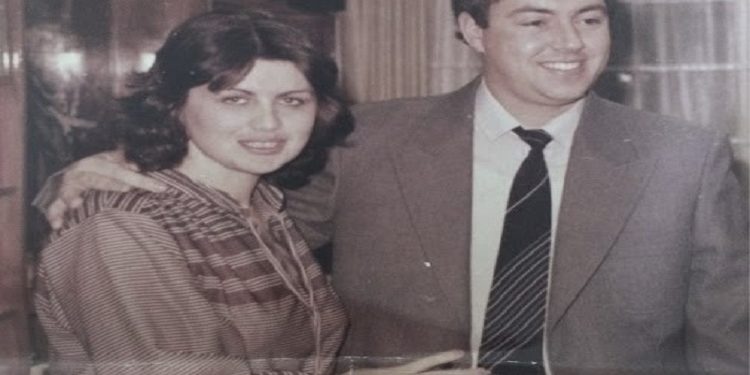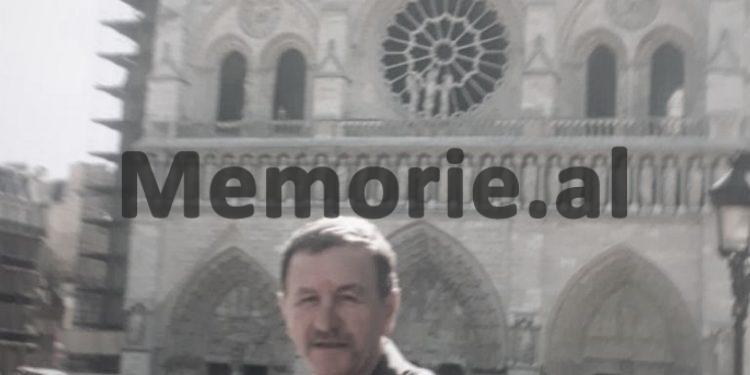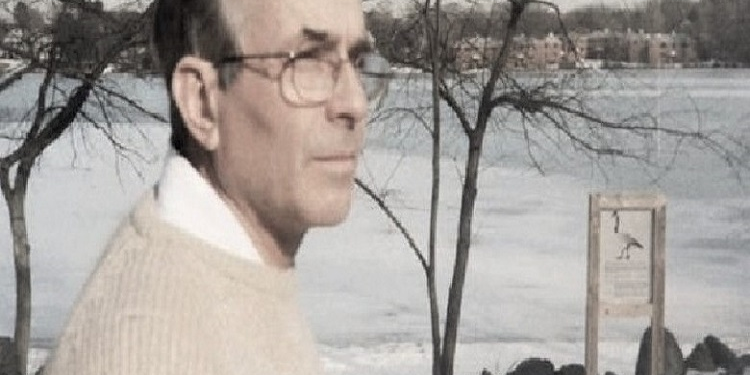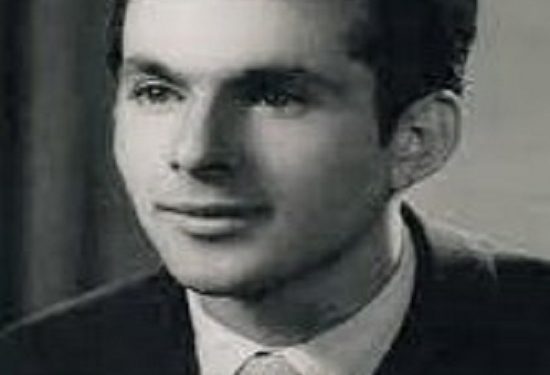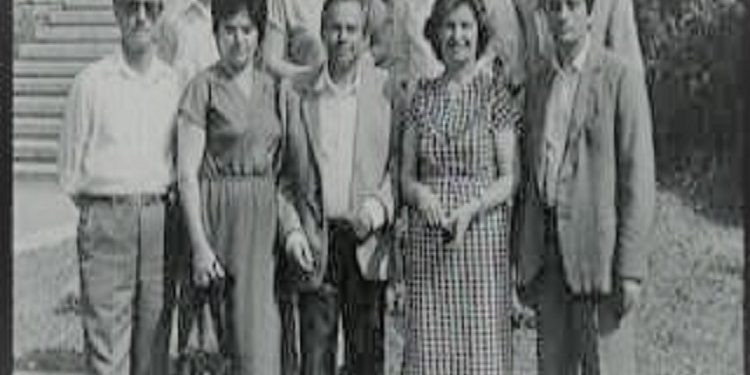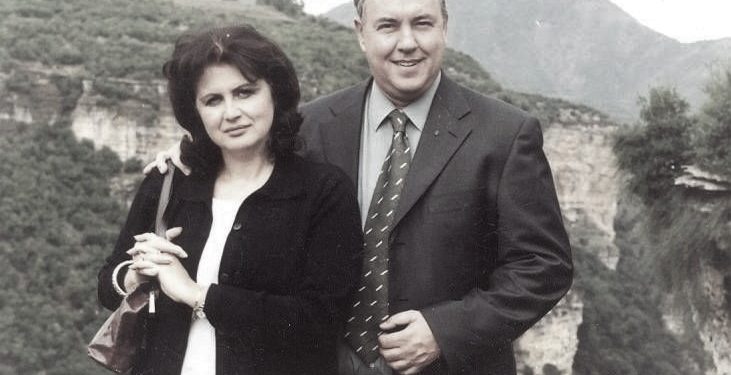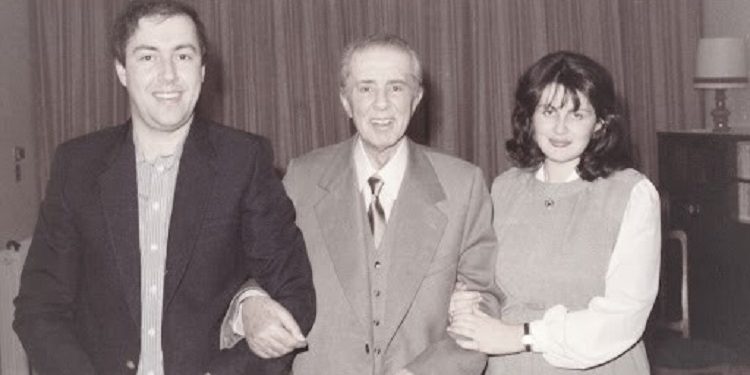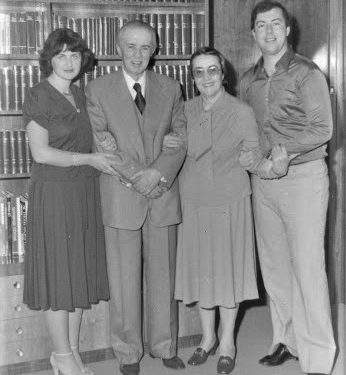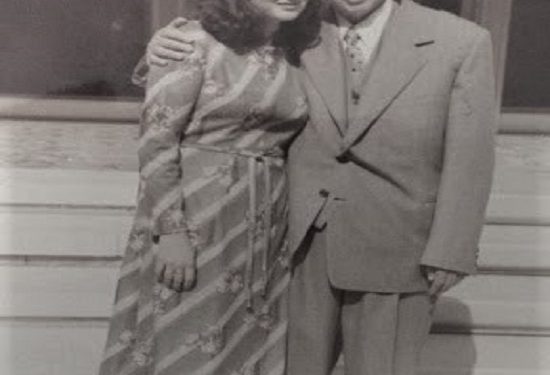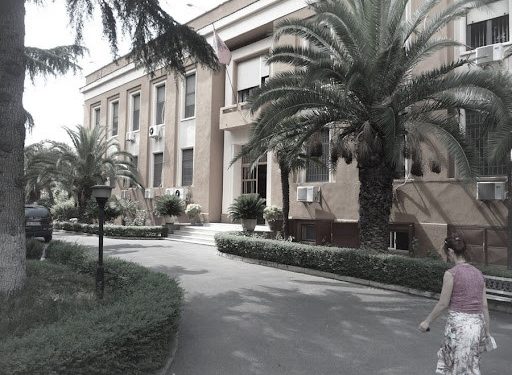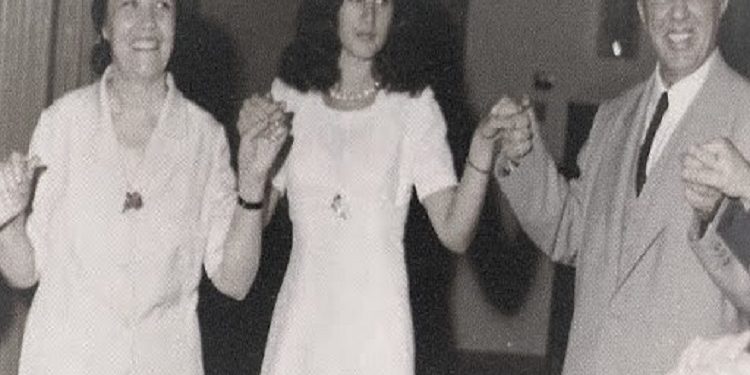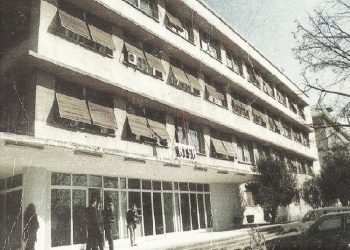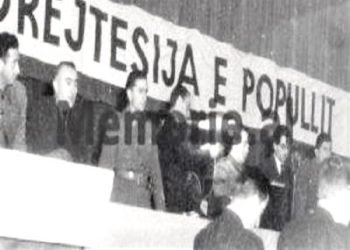By Bashkim Trenova
Part thirty-one
Memorie.al publishes the memoirs of the well-known journalist, publicist, translator, researcher, writer, playwright and diplomat, Bashkim Trenova, who after graduating from the Faculty of History and Philology of the State University of Tirana, in 1966 was appointed a journalist at Radio Tirana in its Foreign Directorate, where he worked until 1975, when he was appointed journalist and head of the foreign editorial office of the newspaper ‘Zeri i Popullit’, a body of the Central Committee of the ALP. In the years 1984-1990, he served as chairman of the Publishing Branch in the General Directorate of State Archives and after the first free elections in Albania, in March 1991, he was appointed to the newspaper ‘Rilindja Demokratike’, initially as deputy / editor-in-chief and then its editor-in-chief, until 1994, when he was appointed to the Ministry of Foreign Affairs with the position of Press Director and spokesperson of that ministry. In 1997, Trenova was appointed Ambassador of Albania to the Kingdom of Belgium and to the Grand Duchy of Luxembourg. Unknown memories of Mr. Trenova, starting from the war period, his childhood, college years, professional career as a journalist and researcher at Radio Tirana, the newspaper ‘Zeri i Popullit’ and the Central State Archive, where he served until the fall of the communist regime of Enver Hoxha, a period of time when he in different circumstances met many of his colleagues, suckers of some of the ‘reactionary families’, etc., whom he described with a rare skill in a book of memoirs published in 2012, entitled ‘Enemies of the people’ and now brings them to the readers of Memorie.al
Continued from the previous issue
“Enemies of the people”
Leaving for France as political asylum of Radio colleague, Jolanda, with her husband Robert Papavrami!
During my years of working in Radio, I also met Donika’s two sisters, Natasha and Jolanda. I met Natasha through Renée Anderson, who worked at the Radio for the preparation of shows in French, but also gave lectures in this language at the University of Tirana. Natasha was a student of Renées. She looked more temperamental than her two sisters. I met Jolanda in the Music Editorial Office of Radio Tirana, where she also worked. I occasionally went to this Newsroom to order a song for broadcast. Donika, Natasha and Jolanda and I knew each other not only because our house was not far from each other, but also because my mother was an old friend of their mother, Marie, if I had not forgotten her name.
Jolanda was married to Robert Papavram, a well-known violin teacher. They also had a son, Teddy Papavramin. This very quickly attracted the attention of the public for his talent. Generally in life, grandparents rejoice when they see that their grandchildren have talents, are talented, will make a name for themselves, will be applauded in the country scenes and, why not, in the world. In the Albania of the communist dictatorship, Ted’s powerful talent, the path he and the Papavrami family followed to bring out his values, caused Spiro Rusha and others endless suffering.
Robert, Jolanda and Teddy left Albania and sought refuge in France. Robert and Jolanda thought that there Teddy would have the opportunity to study and show himself, in the future, as a virtuoso violinist. They were not opponents of the regime, but this election was enough to treat them as such, as enemies. They were aware of the consequences, but sacrificed everything for the future of their child.
Although the Albanian-controlled press maintained complete silence over the departure of the Papavrami family, the event was discussed in all of the Party’s grassroots organizations. After that the revenge of the regime would be exemplary. Spiro Rushon was interned in a town in northern Albania. I do not remember well in Burrel or Rubik. In addition to suffering from hunger, he had to endure the contempt and insults, surveillance and provocations of the Security and the fanatical militants of the mass organizations.
Similar dictatorships were imposed on Teddy Papavram’s grandfather by his father. His house was razed to the ground, and all his family property was confiscated. He was interned in the village of Kota in Vlora. I last met Jolanda in 1991 in Paris, where I was together with colleagues from the newspaper “Rilindja Demokratike” and the chairman of the Democratic Party, Sali Berisha, invited by “Le Figaro”. She came and met me, invited me for lunch, accompanied me to some nearby stores and bought two school bags as a gift for my children, Bora and Arber. He did not stop from proposals and offers to please me. He came and escorted us to the airport when we were about to leave Paris. I had the impression that I was not just an acquaintance of hers, a former colleague. She also saw me as a journalist for the “Democratic Renaissance”, the first opposition newspaper, which played an extraordinary role in breaking the fear, mobilizing the people against the dictatorship and overthrowing it. Jolanda was a kind woman, but in this case, I have the impression that her kindness was also as a gratitude to all those who risked overthrowing the dictatorship, the hell of her parents and sisters.
This was my knowledge of the Central State Archive, of the “enemies of the people”, who had not been absent here, as in almost every state institution during the dictatorship. I also knew that Rinush Idrizi also worked in this institution, with whom I consulted before I decided to start working there, as well as Partizan Peza, my mother’s uncle’s son, with whom I was connected, especially, during my childhood .
In the Central State Archive, as chairman of the Publishing Branch!
When I started working as the head of the Publishing Branch at the Central State Archive, my childhood friend Rinush Idrizi was already working in this Branch. There I also found Beqir Meta, a young man who had just finished his higher studies and who, as I would see later, was energetic, modest and tireless in doing his job and helping his colleagues. He was full of scientific ambitions which he would realize in time with a strong will. Over the years Beqiri would become director of the Institute of History, director of the National Historical Museum, would deserve the highest scientific titles and degrees.
Formally, Teuta Hoxha also worked in the Publishing Branch, a beautiful woman and cold as porcelain. I say “formally” because during the 8 years I stayed in this institution, she has been there no more than 8-18 times. When you had the opportunity to see him, he left the impression as if he was always in a half-asleep state. She pretended to work from home and did not even come to the Archives to sign the payroll at the end of every 15 days. They even sent his salary home. In fact, Teuta worked neither in her office nor at home. She was utterly incapable of any intellectual work because she had a limited intellect. She was only sent a salary by the General Directorate of State Archives to the villa where she lived with her husband and the dictator and his wife. They have not stopped selling “pure proletarian morality” even for work discipline, to speak out against swindlers, parasites and lazy people, who sought to take advantage of socialist society. They, on the other hand, never worried about the fact that Teuta Hoxha, the wife of their son, Ilir Hoxha, did not go to work.
Teuta Hoxha’s privileges in the State Archive, where he never came to work!
Teuta, being the wife of the dictator’s eldest son, also had a special treatment. She, like the director and deputy director of the institution, had an office of her own. People who were known as “enemies of the people” did not work in the State Archive. Occasionally a voice arose, seeking to attract attention by recalling that Eduard Zaloshnja, a kind, very human boy, had something, the same shadow in the biography. It was mentioned that during the Second World War, his father, it seems to me, had been affiliated with the nationalist organization of the National Front, an opponent of communism. Others, such as Reshat Alia, the brother of the dictator’s descendant and Teuta’s father, denied Edward’s “ballistic” origins and swore to verify this.
Words were occasionally uttered about Vehbi, also a noble boy, laid to work and quite educated. In fact, the words about Vehbi did not resonate. Then why did she need a special office, by whom would she be protected in the State Archives? Teuta Hoxha needed this office to be isolated from other employees, to be protected from any contact with them, although he did not have any special official status, different from them. Apparently, not only the dictator was gripped by paranoia, but he had passed it on to others in the family. Leaving her a separate office, almost always closed, empty, it was thought at the same time that her constant absence would not stand out. The ostriches of this solution thought that, in this way, the dignity of the dictator’s family was protected and the way was closed to comments and opinions, which of course would not be welcomed by it, by the court and camp of the Dalkauks and servile in their service. .
Tetuta Hoxha named her as the author of Rinush Idrizi’s book!
Before starting work at the General Directorate of State Archives, I was attracted by the publication of a volume of documents from the life and patriotic activity of Ismail Qemali, this prominent diplomat, who raised the flag of independence in Vlora in 1912 by thus ending nearly 5 centuries of Ottoman occupation in Albania. The publication was dignified. The author was Teuta Hoxha even though she herself had not worked a single day for its preparation. After all, she somewhat poorly imitated Enver Hoxha, her father-in-law. In the shocking propaganda of the Labor Party, among other things, it was emphasized that: “We must be inspired by the life and work of comrade Enver Hoxha”. He has published dozens and dozens of volumes and a series of books under his name. In fact, an entire institute worked for them, such as the Institute of Marxist-Leninist Studies, headed by Nexhmije Hoxha. Enver, who inspired an entire people, even the entire proletariat and revolutionaries everywhere in the world, could not help but inspire Teuta in his home!
The real authors of the volume of documents about Ismail Qemali were Rinush Idrizi and his wife, Frida. This fact is known to all employees of the Central State Archive of that period. This is also confirmed by one of the members of the Hoxha family, Liliana Hoxha, the wife of Sokol Hoxha, the dictator’s second son. In February 2006, talking about the publication of the documentary volume dedicated to Ismail Qemali, in one of the Albanian newspapers, she says: “… a whole anonymous staff worked for him, such as Rinush Idrizi with his wife and others then”. Rinushi, in charge of Thoma Murzaku, collected, selected and processed the documents. Frida was the volume editor. She worked at the “8 Nëntori” Publishing House, which took over the publication. Both were “biographically tainted”, both struck by the infamous IV Plenum of 1973.
They should have considered a great fortune the fact that they worked and prepared a documentary volume whose authorship would pass to Teuta Hoxha. This is how they could think and present themselves as rehabilitated. The documentary volume on Ismail Qemali, in fact, gave them the opportunity to meet several times with Teuta Hoxha and Ilir Hoxha, meetings that could not go unnoticed by party and state bureaucrats. A meeting with them at that time was the same attestation, the same passport, which proved that you are a confidant of the regime; otherwise you could not even approach them. After a few years, when I started working in the State Archive, I would also become a “Rinush”, i.e., I would work on a volume of documents where the name of Teuta Hoxha as author would be placed.
***
From the first day in the Publishing Branch I got acquainted with the work that was being done for a new documentary volume. Rinushi and Beqiri were engaged in its preparation. It was published a year later, in 1985, by the Publishing House “8 Nëntori” with the title “Peasant War for Land 1925-1939”. The dictator Enver Hoxha, in one of his speeches, had emphasized, among other things: of the aghallars to rob the peasants … you will be able to extract historical facts so important and of educational value, that the young man or woman, when reading them in the newspaper, will understand what sufferings their ancestors endured , their grandparents and parents until they arrived at these happy days we live in. ” This speech “inspired” the General Directorate of State Archives to charge its two employees for the preparation of the above volume.
The volume “Peasant War for Land 1925-1939”, as its title suggests, exposes selected documents, which date back to 1939. It could not continue further, in the years after World War II. , when the feudal-communist power did not leave to the peasants even that land which the Anatolian Albanian feudal lords could not have seized. With the agricultural cooperatives, not only the last strip of land was taken from the Albanian peasant, but also cattle, chickens, horses and donkeys, orchards, olive groves and everything that makes the peasant peasant, which provides him with an independent life. The poverty of the Albanian peasant in the years of communism is legendary, perhaps unprecedented in the history of Albania. He was forced to go down to town praying in state-owned stores to buy a pound of bread enough to spend an evening with his children.
He returned to the village without bread in the bag, without two leeks, without two eggs, because the state shops did not trade these, etc. products for the peasantry. Albanian farmers were forbidden to produce for themselves and at the same time were forbidden to buy! Peasant women when they went out in the alleys of Tirana to secretly sell a bunch of parsley covered it with their aprons as was done in the years of occupation with anti-fascist tracts! Regime police officers, if they smelled the smell of hidden parsley, would be attacked just like anti-drug dogs, would seize and trample every thread and leaf of this aromatic plant. The peasant woman had to return to the village empty-handed, to her children with bellies. These were the “happy days” of the socialist peasantry. In these conditions she should have cheered for her “happiness”, at least not to complain that she was not “happy”. Anyone who could have acted differently was told where he would really be unhappy, that there were also prison cells.
As I write this, I am reminded of a visit of the former American president, Jimmy Carter, to a village in Fushë-Krujë or Krujë in Albania, shortly after the overthrow of communism. The former American president asked the villagers about their lives, about the problems they had to face, etc. The villagers, remembering that the former president had the magic key in his hands, poured him a stream of complaints, difficulties and real problems. Jimmy Carter asked, “Well then, don’t you want to go back to agricultural cooperatives? Wouldn’t you be better off?” The immediate and unanimous response was: “Never!”
In the first year of work in the Publishing Branch at the General Directorate of State Archives, in 1984, I was also involved in collecting and selecting documents that spoke of the anti-fascist resistance of the Albanian people led by the Communist Party of Albania. In 1984, 40 years had passed since the liberation of Albania from the Nazi-fascist occupiers. In this context, the Directorate of Archives had included in the work plans the organization of a documentary exhibition. We opened this in one of the halls of the Great Palace of Culture in the center of Tirana. Haxhi Lleshi, former president of the Presidium of the People’s Assembly, also attended the inauguration, as it were, as speaker of the parliament of the time.
At the end of the exhibition I proposed to the General Directorate of State Archives to make a publication of documents that spoke of the anti-fascist activity of the people’s heroes, their persecution by the enemy, the battles in which they had participated and the fall in the field of honor for the freedom of the country. I worked for about a year collecting, selecting and processing documents. The volume “Heroes of the Anti-Fascist National Liberation War” was published in 1986. I am one of its three authors, even the last one. The names of Thoma Murzaku and Teuta Hoxha are placed before me, as authors. I did not object to this. There was not much that I was actually expelled from the newspaper “Zeri i Popullit”, being treated almost as a mentally ill person. An objection on my part would do nothing but “confirm” the diagnosis.
There were no “spots in the biography” in the State Archive!
I did not want to start new “battles”. I “chose” the State Archive as a new job, thinking that here the battles are in the archives, so a quiet place where the current does not exist because it has not yet been archived. I had thought that there I would feel myself archived, like a closed folder, that would never be opened. However, it did not take long for something completely different to happen. Apparently I was born not to get along well with my superiors, to clash with them and others, without accepting compromise and always taking too many risks. Agron Çobani in his book “Ju flet Tirana”, sketches me: “As a somewhat special person who did not agree and did not accept compromises for what he did not like …”. Maybe he’s right.
The director of the State Archives, Thoma Murzaku, as I said, I had a lecturer in Balkan History when I was a student. In the exams in his subject he had rated me with the maximum. Vasil Naço, was another lecturer of mine during my student years, a very charming guy. He gave us lectures on World Economic Geography, which did not appeal to me. The exams with him always happened after the exams we gave with Thoma Murzaku. So he, when I handed him the exam grade notebook, saw the assessment that Thoma Murzaku had given me and added: “Are you blonde or you have a friend Thoma Murzaku, or you are my enemy”! I actually had “enemy” figures for coal or chromium reserves, figures for the production of textiles, electricity or cars in this or that country of the world. Thomain I had no friend, I could not have a professor a friend. I respected him a lot. Our course had him as a caretaker professor as well. Thomai was also the secretary of the Party’s basic organization for the Faculty of History and Philology. During my student years I was the secretary of the course youth organization. This probably made me have even more contact with him, to get closer to him.
In my beginnings in the State Archives, Thoma Murzaku continued to be for me the same one I had known at the Faculty of History-Philology. I always maintained the same respect, that of the student for his professor. The knowledge from the years of the Faculty made him propose me to work with him and also I accepted his proposal. We both did not count that almost 20 years had passed since the completion of the studies, so that many things had changed in both him and me. Maybe even in the years of the Faculty we did not know each other well.
Thomai received me amicably at the State Archives. He also nominated me as secretary of the institution’s basic Party organization. We talked together, as I thought, openly about work and people. The Publishing Branch I headed, not having a proper archival work, did not have much connection with the network of archival work, and therefore with other employees of the State Archive. It took me a relatively long time, say 2-3 years, to get to know both the employees and their problems at work, which were not few. I trusted Thoma Murzak and did not doubt anything he said to me. Several times we traveled together to get to know the archival points, which stretched in different geographical areas of the country. My office in the State Archives was in front of him and Thomai regularly called me to have a coffee with the deputy director, Ivan Loli as well as with Rinushi, Eduard, Vehbi, etc. Sometimes we even went to the Artificial Lake in the hills of Tirana, to drink from a glass of brandy accompanied by a frying pan prepared on the fire in a clay casserole. In these cases, Thomai came along with his wife. The rest of us, all married, were not near our friends. I do not know who set this “rule”?
Christopoulos, director of the Library of the Greek Parliament, for research in our Archive!
Things started to change from the end of 1984. At this time Panagiotis Christopoulos, director of the Library of the Greek Parliament, came for research from Greece to the Central State Archive. He was interested in getting acquainted with the Codex Beratinus – one of the seven oldest manuscripts in the world, preserved in Albania. The director, Thoma Murzaku, decided that I should accompany Panajot during his one-month stay in Albania. Efigjeni Shkreli, an employee of the Archive, originally from the Greek minority, was appointed translator. Together we made a trip of several days falling to Albania from North to South. Here I made the first “mistake”.
Panajotis had asked to visit the church of Kolkondas, a village in the district of Fier in southern Albania. Thoma Murzaku had told me not to take Panayot to this church because it was dilapidated. In fact, in those years, almost all churches and mosques in Albania were destroyed. Rarely had anyone escaped the wave of destruction and been preserved by being declared a cultural monument. Religious practices and cults were banned by law from the regime. When we arrived in Fier, I learned that the church of Kolkondas was in good condition and had been declared a cultural monument. So I found no reason not to take Panayot to visit this church.
Panayotis Christopoulos was not interested in the church of Kolkondas itself, but in a small coffin, which was located on its altar and where, according to the foundations, the remains of St. Cosmas were preserved. This was a former Greek clergyman, who about 1.5-2 centuries ago had moved to the territories of Southern Albania, where he had opened Greek schools. In fact, he was an emissary of the megaloid according to which Southern Albania was known as Northern Epirus, ie it was part of Greece, more precisely, part of Greek Epirus. One day he was found by the villagers drowned in the river Vjosa or Seman, I do not remember well. The Greek Church declared him a martyr and a saint. Memorie.al
The next issue follows




